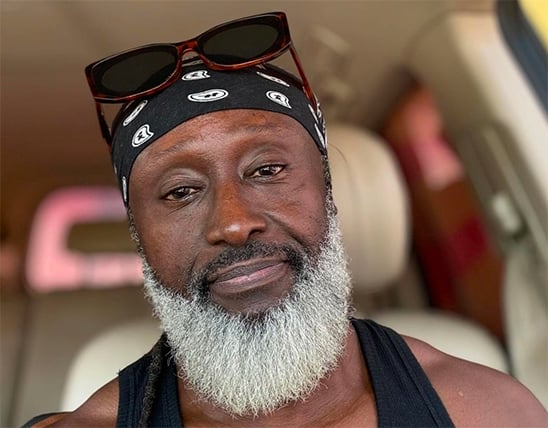Reggie Rockstone, a prominent figure in the Ghanaian hiplife scene, has voiced his discontent with the public’s accusatory stance towards the music industry regarding the struggles of fellow musician, Okomfour Kwadee. Kwadee, known for his impactful contributions to the music landscape, has been grappling with personal and health challenges, a situation that has sparked public debate and criticism. Rockstone’s frustration stems from the tendency to place blame solely on music organizations like MUSIGA and GHAMRO, while overlooking the individual responsibility each music consumer bears. He questions the passive nature of those who criticize from the sidelines without extending a helping hand. This narrative highlights a complex issue within the music ecosystem: the often-blurred lines of responsibility and the tendency to externalize blame when artists face adversity.
Rockstone challenges the notion that the music industry alone shoulders the responsibility for Kwadee’s wellbeing. He argues that the public, who benefited from Kwadee’s musical contributions, shares an equal, if not greater, responsibility. His pointed question, “What are you doing besides pointing the finger and talking?” emphasizes the importance of action over empty criticism. He champions the idea that a compassionate, community-driven approach, encompassing fans, individuals, and industry stakeholders, is essential to effectively address Kwadee’s situation. This underscores the broader issue of societal responsibility for artists who have contributed to the cultural landscape and now face difficult circumstances.
The veteran musician argues that Kwadee’s struggles are not merely an industry problem but a human one. He advocates for empathy and a move away from assigning blame to focusing on practical support. Rockstone draws attention to the emotional connection fans should feel, reminding them of the years of enjoyment Kwadee’s music provided. His plea for action emphasizes the need for tangible support—financial, emotional, or spiritual—demonstrating his belief that collective effort can make a substantial difference. This stance challenges the passive consumption of music and advocates for a more reciprocal relationship between artists and their audience.
Furthermore, Rockstone reveals that Kwadee’s situation is complex and multifaceted. His statement that assistance is being rendered but not publicized underscores the need for sensitivity and respect for Kwadee’s privacy. This highlights the delicate balance between public awareness and the need to protect an individual’s dignity during vulnerable times. The fact that Kwadee is currently residing with his family in the Upper East Region points to a support system beyond the music industry, indicating that diverse forms of care are crucial.
The public criticism, while perhaps stemming from genuine concern, may be inadvertently hindering the support efforts already in motion. Rockstone’s intervention serves as a reminder that public pronouncements can have unforeseen consequences and that discreet, collaborative efforts are often more effective. His message calls for understanding and patience, acknowledging the intricacies of Kwadee’s situation and emphasizing the need for a supportive environment rather than a judgmental one.
In essence, Reggie Rockstone’s message transcends the immediate concern for Okomfour Kwadee. It serves as a broader commentary on the relationship between artists, the music industry, and the public. It highlights the shared responsibility for the well-being of artists, especially those facing difficulties. His call for action, grounded in compassion and understanding, challenges us to move beyond criticism and engage in meaningful support. It emphasizes the importance of collective action and the recognition that artists are not merely commodities but individuals deserving of care and respect, especially when in need. His advocacy for Kwadee serves as a poignant reminder of the human element within the music industry and challenges us to foster a more supportive and empathetic ecosystem.














